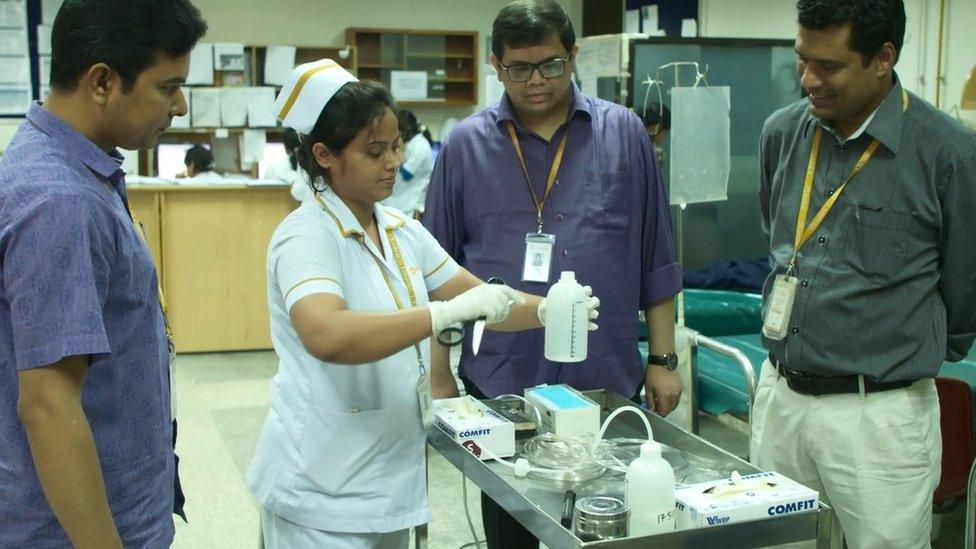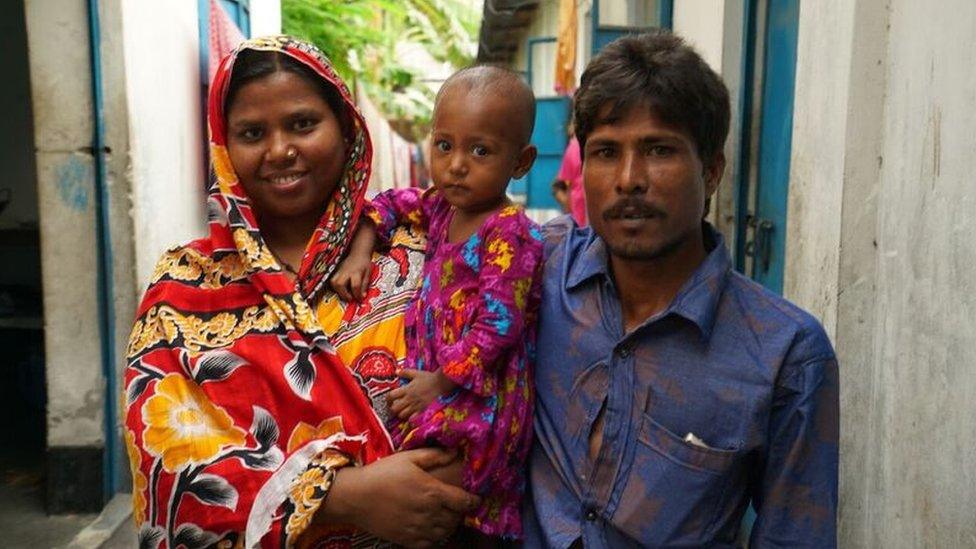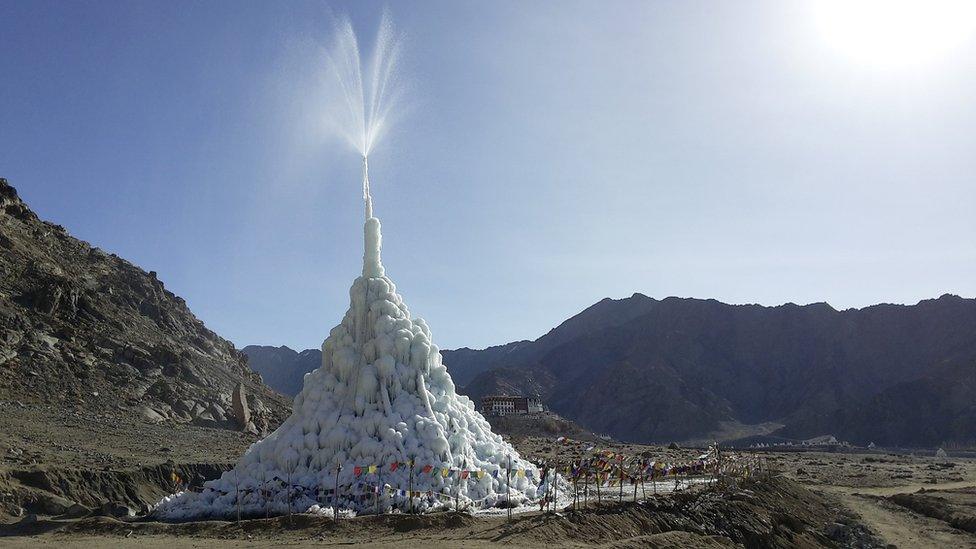The shampoo bottle saving babies from pneumonia
- Published
The Bangladeshi doctor who turned a shampoo bottle into a low-cost lifesaver
"It was my first night as an intern and three children died before my eyes. I felt so helpless that I cried."
In 1996, Dr Mohammod Jobayer Chisti was working in the paediatric department of the Sylhet Medical College Hospital in Bangladesh. That evening he made a promise that he would do something to stop children dying from pneumonia.
About 920,000 babies and small children die from the disease each year, mostly in South Asia and Sub-Saharan Africa.
After two decades of research, Dr Chisti has now come up with a low-cost device with the potential to save thousands of babies' lives.
Expensive machines
Pneumonia affects the lungs after infections from bacteria like streptococcus (strep throat) or a virus such as respiratory syncytial virus (RSV). The lungs become swollen and fill with fluid or pus, reducing their ability to take in oxygen.
In developed countries hospitals use ventilators to help children with pneumonia to breathe.
But each machine can cost up to $15,000 (£11,000) and must be operated by specially-trained staff which can make them too expensive for hospitals in developing countries such as Bangladesh.
The World Health Organisation's recommended low-cost alternative treatment for severe pneumonia - low-flow oxygen - still results in one in seven children dying.

The pressure from the bubbles in Dr Chisti's device keeps the small air sacs of the lungs open
Dr Christi got his inspiration from a machine he saw while working in Melbourne, Australia. This uses continuous positive airway pressure (CPAP) to prevent the lungs from collapsing, helping the body to absorb enough oxygen. But it is expensive.
When he returned to work at the International Centre for Diarrhoeal Disease Research, Bangladesh, he started work on a simpler, cheaper bubble CPAP device.
He and a colleague took a discarded plastic shampoo bottle from the intensive care unit, filled it with water and inserted one end of some plastic supply tubing.


The BBC's Innovators series reveals innovative solutions to major challenges across South Asia.
Ever heard of the concept of "jugaad"? It's a Hindi term meaning cheap innovation.
If you have created a life hack or innovation that you are proud of, or spotted one while out and about on your travels, then share your picture with us by emailing yourpics@bbc.co.uk, external, use the hashtags #Jugaad and #BBCInnovators and share your picture with @BBCWorldService, external, or upload your submission here, external.
Learn more about BBC Innovators.

"The children inhale oxygen from a tank and exhale through a tube which is inserted into a bottle of water producing bubbles in the water," Dr Chisti explains.
The pressure from the bubbles keeps the small air sacs of the lungs open.
"We tested it on four or five patients at random. We saw a significant improvement within a few hours."
Successful Trial
"Doctors worked so hard; oxygen, a pipe for food, and then a white round bottle was connected with water bubbling away," says Kohinoor Begum, whose daughter Runa was treated by the device.
"After the treatment, when my child recovered, I felt so happy."
After a two year study, Dr Chisti published the results, external in The Lancet magazine. It showed children treated with the bubble CPAP device had much lower death rates compared with those treated with low-flow oxygen. At a cost of just $1.25 (£1), the device appeared to cut mortality rates by 75%.
The device also makes much more efficient use of oxygen, slashing the hospital's annual oxygen bill from $30,000 (£23,000) to just $6,000 (£4,600).
Dr ARM Luthful Kabir, professor of paediatrics at Ad-din Women's Medical College, says a nationwide study is still needed but the results are encouraging.

Kohinoor Begum and Rezaul Karim with daughter Runa, one of 600 babies treated using the device
"I think this innovation has great potential to reduce the mortality rate drastically because any hospital can afford this," Dr Kabir says.
So far, about 600 children have benefited from the low-cost life saver.
Dr Chisti has been promoted and is now head of clinical research at his hospital but the father-of-three still finds time to play with the children on the ward.
When asked how he feels to be fulfilling that promise he made 20 years ago he replies: "I have no language to express this."
He wants every hospital in developing countries to have the CPAP device available to them.
"On that day, we can say that pneumonia-related mortality is near zero."
- Published3 October 2017
